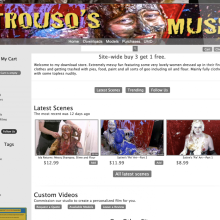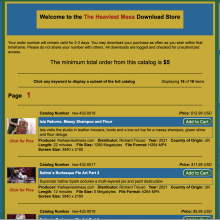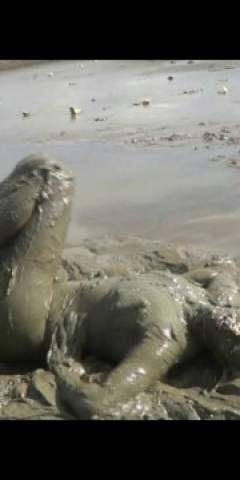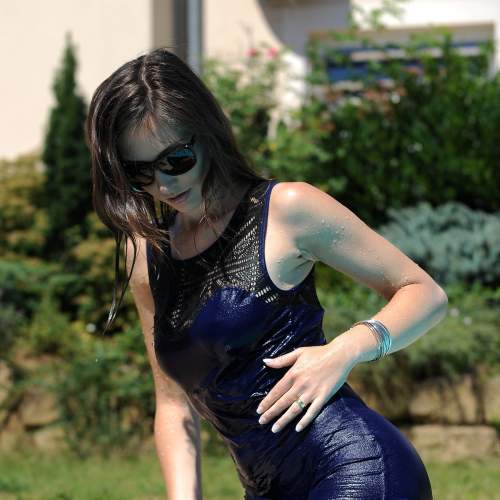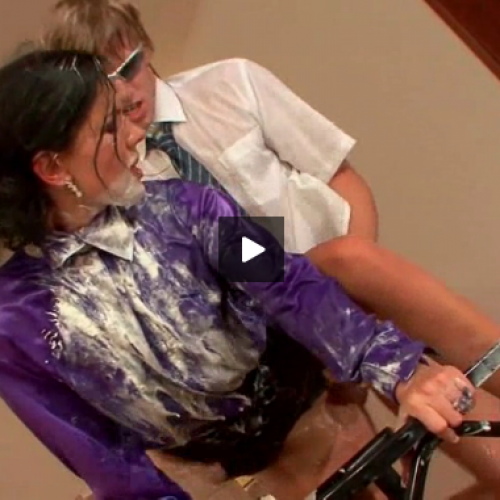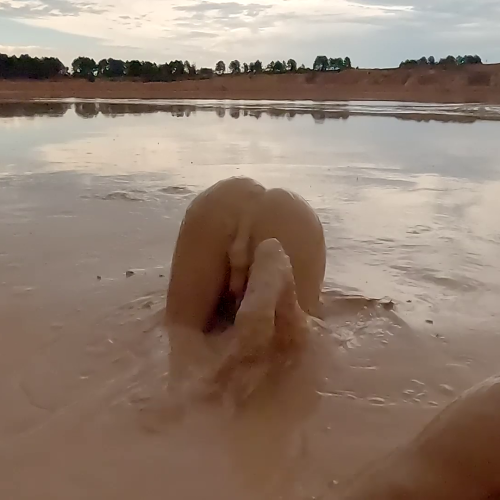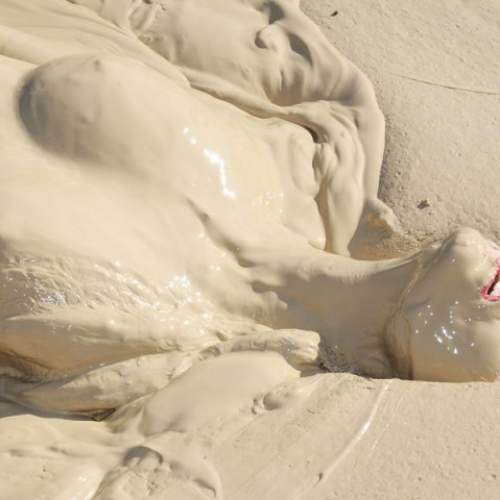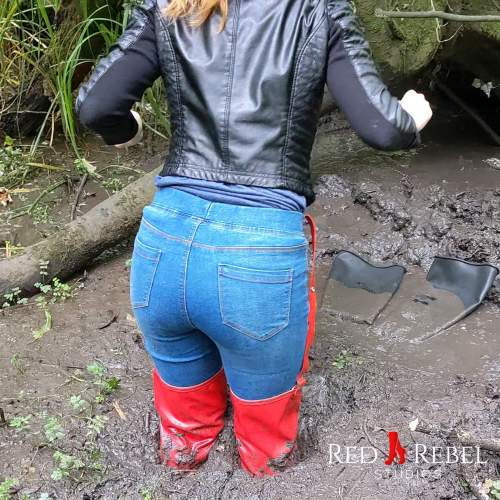|
|
|||
| forums: groups: | |||
|
"singing my parodies-would it violate copyright"
As some of you know, I have been submitting WAM (okay, mostly M) song parodies to UMD stories. Since I am one who has subjected you to them, I feel that, to balance the books, so to speak, that I should suffer the torture of making a video of my singing the parodies and submit the videos to UMD. If this occurs and if you happen to watch one of them, feel free to laugh as hard as you want at my singing. After all, that's what i plan to do.
Now, before this could happen, two things have to occur. The first is that I would have learn how to make such a video. That's on me. The second is that, like any good little UMD'er (well, perhaps, in my case, not little. [BTW--please don't comment about my use of the word "little"; I intend no offense, and If I did inadvertently you, I apologize. I only wanted to set up the joke that followed. Yes, I know. I will say it for you: it was a little joke.], I need to be as sure as I can that the submission doesn't violate copyright law. The lyrics are, of course, not a problem. As the author, I own those copyrights. However, as far as I can tell from searching the internet, the music is still under copyright. However, this doesn't mean that I can't make the videos. Parodies that are classified "Free Use" don't violate copyright laws. From my brief examination of the topic on the internet, I believe that the publishing of such videos. However, I'm farther from being an expert, or even knowledgeable, about Free Use than Voyagers I and II are from Alpha Centauri, and I would greatly appreciate any feedback that I can from those members of UMD who are knowledgeable about what constitutes Free Use. I thank everyone who has read this for their time, and I promise I that I will do best next time not to write a post that's as long as "War and Peace". Again, thank you for your time and feedback.
Now, before this could happen, two things have to occur. The first is that I would have learn how to make such a video. That's on me. The second is that, like any good little UMD'er (well, perhaps, in my case, not little. [BTW--please don't comment about my use of the word "little"; I intend no offense, and If I did inadvertently you, I apologize. I only wanted to set up the joke that followed. Yes, I know. I will say it for you: it was a little joke.], I need to be as sure as I can that the submission doesn't violate copyright law. The lyrics are, of course, not a problem. As the author, I own those copyrights. However, as far as I can tell from searching the internet, the music is still under copyright. However, this doesn't mean that I can't make the videos. Parodies that are classified "Free Use" don't violate copyright laws. From my brief examination of the topic on the internet, I believe that the publishing of such videos. However, I'm farther from being an expert, or even knowledgeable, about Free Use than Voyagers I and II are from Alpha Centauri, and I would greatly appreciate any feedback that I can from those members of UMD who are knowledgeable about what constitutes Free Use. I thank everyone who has read this for their time, and I promise I that I will do best next time not to write a post that's as long as "War and Peace". Again, thank you for your time and feedback.
Disclaimer: For general guidance and further discussion only:
In theory, you ought to seek express permission to "licence" your use from the appropriate copyright owner if you record music as, depending on the level of exposure the resultant content gets, they will want their share (or all, of,) any payments or royalties and moreover to maintain control over their property.
In practice, it's entirely down to the owner, their own interests and how protective, zealous, litigious or tolerant they are.
If your audience is small, you don't try to sell the content and it doesn't defame the author or brand you'll probably be ignored (although don't think this means nobody's looking!)
If you gain a lot of exposure, you'll very likely get some attention. Possibly a writ to cease and desist. If it's suspected you've made significant gains, possibly sued for them and face paying unlimited sums in damages
"Fair use" is a doctrine of United States copyright law and not necessarily always accepted worldwide and still subject to a lot of interpretation. It's well known that 'fan art', for example, is usually tolerated because it provides positive brand exposure but, if you're really worried about consequences seek advice from a specialist lawyer in Intellectual Property.
In theory, you ought to seek express permission to "licence" your use from the appropriate copyright owner if you record music as, depending on the level of exposure the resultant content gets, they will want their share (or all, of,) any payments or royalties and moreover to maintain control over their property.
In practice, it's entirely down to the owner, their own interests and how protective, zealous, litigious or tolerant they are.
If your audience is small, you don't try to sell the content and it doesn't defame the author or brand you'll probably be ignored (although don't think this means nobody's looking!)
If you gain a lot of exposure, you'll very likely get some attention. Possibly a writ to cease and desist. If it's suspected you've made significant gains, possibly sued for them and face paying unlimited sums in damages
"Fair use" is a doctrine of United States copyright law and not necessarily always accepted worldwide and still subject to a lot of interpretation. It's well known that 'fan art', for example, is usually tolerated because it provides positive brand exposure but, if you're really worried about consequences seek advice from a specialist lawyer in Intellectual Property.
Bringing pleasure to literally tens of people!
Thank you for you feedback. I do not intend to sell the videos or gain financially in any way. They are intended solely for the enjoyment of the UMD community. I only wish to upload videos of the parodies to the video section of my account. As I think about, though, if the videos ever get made, I should add a disclaimer that the videos are not to be downloaded and limit them to members only, if that's possible. Again, thank you.
It partly depends on what you're intending to do:
a) Will you sing them a capella (i.e. following the original tune but no instruments involved)?
b) Will you play the tune on your own instrument (e.g. a guitar or piano)?
c) Will you use the backing music from the original performance and replace the original singer with your own voice?
Those options get progressively more "iffy" in terms of copyright, but in practical terms I doubt that anyone is going to complain.
On a side note, I'm not an expert in fair use, but I think it's often misinterpreted. For instance, Weird Al uses option b, i.e. he repeats the original tune on his own instruments and adds his own lyrics. However, most of his songs don't count as parody because they're not making fun of the original song, he's just using their tune to make fun of something else. (He gets permission from the original singer and pays royalties to them.)
a) Will you sing them a capella (i.e. following the original tune but no instruments involved)?
b) Will you play the tune on your own instrument (e.g. a guitar or piano)?
c) Will you use the backing music from the original performance and replace the original singer with your own voice?
Those options get progressively more "iffy" in terms of copyright, but in practical terms I doubt that anyone is going to complain.
On a side note, I'm not an expert in fair use, but I think it's often misinterpreted. For instance, Weird Al uses option b, i.e. he repeats the original tune on his own instruments and adds his own lyrics. However, most of his songs don't count as parody because they're not making fun of the original song, he's just using their tune to make fun of something else. (He gets permission from the original singer and pays royalties to them.)
I agree with the other participants in this other conversation chain - if it is likely to be very small scale and likely not visited by thousands of people, you'll likely be "ignored".
(Sorry to use a harsh word, but I mean ignored as in not prosecuted.)
However, there is also another point picked up in this thread - different jurisdictions within the world have different levels of IP and protection - and the laws that protect them.
In Australia, the second you start writing some - such as a manuscript, a novel, a song, a script, usually copyright is automatic. This also applies to photos and other pieces of 'artwork' (I use this word loosely). However, in other countries, specifically, copyright has to be specifically applied for and registered.
(Sorry to use a harsh word, but I mean ignored as in not prosecuted.)
However, there is also another point picked up in this thread - different jurisdictions within the world have different levels of IP and protection - and the laws that protect them.
In Australia, the second you start writing some - such as a manuscript, a novel, a song, a script, usually copyright is automatic. This also applies to photos and other pieces of 'artwork' (I use this word loosely). However, in other countries, specifically, copyright has to be specifically applied for and registered.
Thank you very much for your feedback
I plan to do it a capella. I don't multi-task well, so I don't think I could sing and play it on the play it on the piano at the same time.
Ironically, one of the websites I checked out specifically mentioned Weird Al's work as examples of what would qualify at free use. It also mentioned that Weird Al did ask for permission, although it didn't mention that he had paid royalties.
I thank you, ABB, for explaining "ignored". I knew what you had meant, but I do appreciate you taking the extra trouble of making sure that I would know.
I believe that the copyright laws in the US are extremely similar if not identical, to those in Australia. From what I have read, one might lose some of the financial protections if the copyright isn't registered, but, in the US, it is owned from the moment the work is created. I thank you for bringing up an interesting point.
I agree that what I have written aren't parodies of the song per se; however, I don't know of a better word to describe what they are.
Again, thank you.
I plan to do it a capella. I don't multi-task well, so I don't think I could sing and play it on the play it on the piano at the same time.
Ironically, one of the websites I checked out specifically mentioned Weird Al's work as examples of what would qualify at free use. It also mentioned that Weird Al did ask for permission, although it didn't mention that he had paid royalties.
I thank you, ABB, for explaining "ignored". I knew what you had meant, but I do appreciate you taking the extra trouble of making sure that I would know.
I believe that the copyright laws in the US are extremely similar if not identical, to those in Australia. From what I have read, one might lose some of the financial protections if the copyright isn't registered, but, in the US, it is owned from the moment the work is created. I thank you for bringing up an interesting point.
I agree that what I have written aren't parodies of the song per se; however, I don't know of a better word to describe what they are.
Again, thank you.
Sponsors
Sponsors

Design & Code ©1998-2026 Loverbuns, LLC 18 U.S.C. 2257 Record-Keeping Requirements Compliance Statement
Epoch Billing Support Log In





 Love you, too
Love you, too